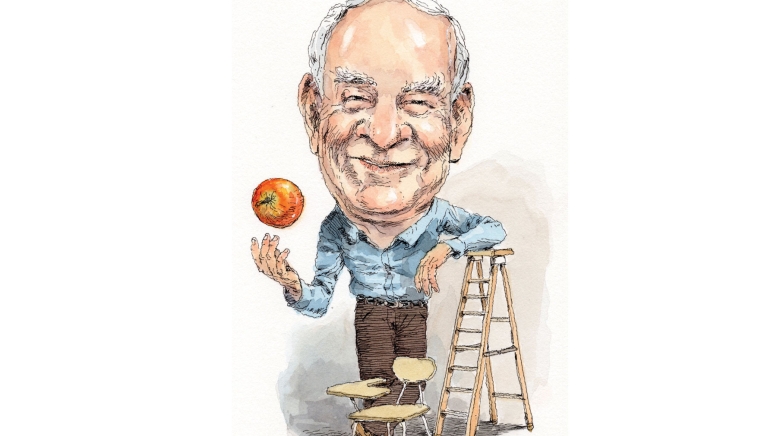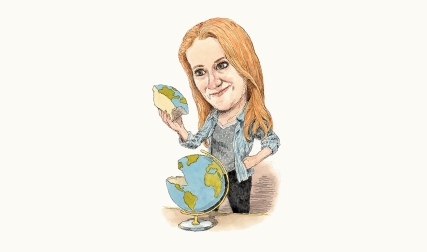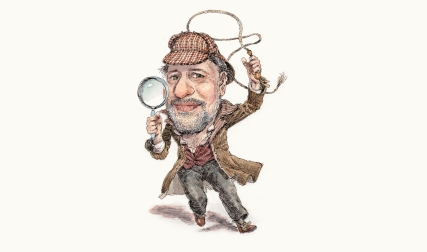Notable: Recipient of two Peabody Awards and the George Polk Award for television and radio reporting on K-12 education during 41-year career; blogs at TheMerrowReport.com; author of Addicted to Reform: A 12-Step Program to Rescue Public Education (2017), The Influence of Teachers (2011), Below C Level (2010), Choosing Excellence (2001)
Career: Taught at a public school, an HBCU, a federal penitentiary, and as a TA at Harvard; NPR reporter; producer and reporter for PBS’ The McNeil/Lehrer NewsHour, including as education correspondent for NewsHour, 1984-2005; columnist for Children, The Magazine for Parents, 1986-1988; editor and host of TLC’s Learning Matters, 1990-92; president of production company Learning Matters, 1995-2015
Education: A.B., English, 1964; M.A., American civilization, Indiana University, 1968; Ed.D., education and social policy, Harvard, 1973
Personal: Lives with wife Joan Lonergan on Martha’s Vineyard and in New York City; father of three adult children
“I never wanted a different beat. I am, at heart, an education nerd.”
“Education is such a big umbrella, it let me cover almost anything that interested me. I spent a month in mental institutions looking at children under the rubric of education. I spent five or six weeks in juvenile institutions and reform schools. I wandered around Native American reservations. I went to China. I went to places like West Virginia, where they were burning books.”
“I could sell my first NPR program as a nonpharmaceutical alternative to Ambien. It was that awful. I had two guys come in to talk about school finance who rambled on. I didn’t understand anything they were saying, but the producer loved it.”
“The solutions to most problems in secondary education are not necessarily easy, but they’re simple. The solution to the challenges posed by artificial intelligence (AI) and the fear of plagiarism is not to invest more money in technology to detect AI, it’s to have the kids write in the classroom without devices. To address mental health issues, young people need to slow down—and not be allowed to have cell phones in classrooms.”
“Instead of a high-school homeroom lasting two minutes where a teacher takes attendance, it should be a 40-minute period with no obligations—a place for conversation that is not only a safe space, but also a warm space where kids can truly feel at home.”
“We’re test crazy in this country. We have all these tests asking, ‘How smart are you?’ The right question to ask is, ‘How are you smart?’ Every child has gifts, intelligence, curiosity. It’s the job of adults to identify those gifts or—at the very least—not get in the way.”
“Public education ought to be a ladder of opportunity. Too often it is a rubber stamp of a student’s background. Coming into a school from a white family with college-educated parents provides a big advantage. We’re often shown examples of people who overcame adversity despite their race and family backgrounds, so we don’t focus on how unusual that is.”
“The term charter school tells you nothing. It’s like saying, ‘Let’s go to a restaurant.’ It could be a for-profit or not-for-profit that is ripping off the system because the operator of the school is hiring relatives and renting a building to the school.”
“There is a reckoning coming. There are good charter schools, but they’re just keeping their heads down instead of objecting to the bad ones. The first test for a charter school is financial transparency. If you can’t find out where the money’s going, shut it down.”
“I feel bad for teachers dealing with today’s bulldozer parents who want to clear all obstacles out of their children’s way. They’re more dangerous than helicopter parents. To a degree, it’s the fault of schools, because educators have been so arrogant for years in saying, ‘Just leave your kids at the door, we’ll educate them.’ That’s nonsense. Parents are a child’s primary teachers, and schools must recognize that.”
“The pleasure of television reporting is working with smart people who care. That teamwork is what I miss.”
“One of the challenges of being a journalist is that it prohibits being a crusader. When I look back, I regret that I wasn’t more confrontational and more of an advocate for kids.”




